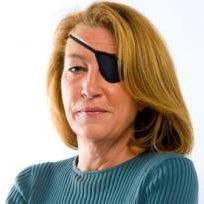Our duty to Sri Lanka, and human rights
Writing in The Guardian as the UN Human Rights Council session opens in Geneva, Archbishop Tutu and Mary Robinson say it is not just Sri Lanka's people that the Council must serve this week, but the cause of international law.
This week the UN Human Rights Council has an opportunity and a duty to help Sri Lanka advance its own efforts on accountability and reconciliation. Both are essential if a lasting peace is to be achieved. In doing so, the council will not only be serving Sri Lanka, but those worldwide who believe there are universal rights and international legal obligations we all share.
Nearly three years since the defeat of the Liberation Tigers of Tamil Eelam (LTTE) by the Sri Lankan government there has still been no serious domestic investigation of the many allegations of war crimes and crimes against humanity committed by both sides during the civil war's final stages. These tragic events cannot simply be ignored.
A report in April 2011 by a panel of experts appointed by the UN Secretary-General documented government forces' large-scale shelling in "no-fire zones" where civilians had been encouraged to gather. Government forces also shelled a UN hub and food distribution lines. The same report says the LTTE used civilians as human shields, refused to allow people to leave conflict areas and forcibly recruited adults and children as young as 14 to fight. Credible sources cited in the UN report have estimated that around 40,000 civilians may have perished in the final months of the conflict. This tremendous civilian toll covers thousands of stories of suffering and strength, the vast majority of which are untold. One verified story chronicles the experiences of a family who were forcibly displaced more than seven times in eight months between September 2008 and May 2009. They repeatedly sought shelter in government-declared "safe zones" (which were then shelled), buried five relatives, including a six-year-old girl, in unmarked graves, and saw many of their fellow civilians killed and injured.
http://theelders.org/article/our-duty-sri-lanka-and-human-rights



 Marie Colvin on 'White Flag surrender'
Marie Colvin on 'White Flag surrender'




